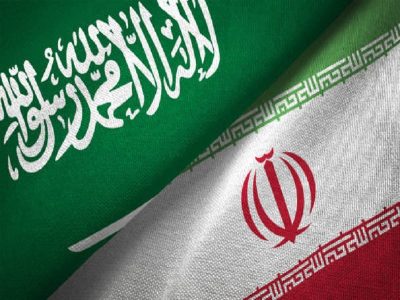China’s Global Security Initiative (GSI): Beijing has Mediated the Resumption of Iran-Saudi Arabia Ties

All Global Research articles can be read in 51 languages by activating the Translate Website button below the author’s name (desktop version)
To receive Global Research’s Daily Newsletter (selected articles), click here.
Follow us on Instagram and Twitter and subscribe to our Telegram Channel. Feel free to repost and share widely Global Research articles.
***
This remarkable development removes one of the most destabilizing factors in regional security for decades, the Iranian-Saudi rivalry, which was exploited by the US to divide-and-rule West Asia. Washington might still try to sabotage their rapprochement, but it’s unlikely that it’ll achieve anything in this respect, especially since both Tehran and Riyadh are likely aware of its intentions. Although it’ll never publicly admit to it, the US is furious at them for this, especially since China mediated their deal.
China’s newly published Global Security Initiative (GSI) just scored its first success after the publication of a trilateral statement on Friday between that country, Iran, and Saudi Arabia regarding the resumption of diplomatic ties between those two West Asian countries. Beijing helped mediate the deal between Tehran and Riyadh whereby they agreed not to interfere in each other’s affairs and to respect their counterpart’s sovereignty, the two principles of which form some of the key pillars of the GSI.
This remarkable development removes one of the most destabilizing factors in regional security for decades, the Iranian-Saudi rivalry, which was exploited by the US to divide-and-rule West Asia. Washington might still try to sabotage their rapprochement, but it’s unlikely that it’ll achieve anything in this respect, especially since both Tehran and Riyadh are likely aware of its intentions. Although it’ll never publicly admit to it, the US is furious at them for this, especially since China mediated their deal.
After all, Iran and Saudi Arabia aren’t just aligning themselves with the Sino-Russo Entente ahead of the impending trifurcation of International Relations between that de facto New Cold War bloc, the US-led West’s Golden Billion, and the Global South, but are also advancing the “petroyuan” scenario too. That last-mentioned outcome could deal a deathblow to the petrodollar and thus unprecedentedly accelerate the global systemic transition to complex multipolarity (“multiplexity”).
The US’ unipolar hegemony would enter into the dustbin of history much sooner than anyone expected, which has serious grand strategic reverberations, both for itself as well as the international community. That already declining hegemon would no longer exercise the disproportionate influence over currency and financial markets as it presently does, thus neutralizing one of its most powerful Hybrid War weapons, which could in turn reduce the likelihood of other states being destabilized via related means.
Having explained the significant geo-economic implications of this latest development, which could literally change the world in the coming future, it’s now time to briefly touch upon its comparatively less important geopolitical ones. To be clear, they’re still extremely meaningful, but there’s no doubt that they pale in comparison to the insight shared in the preceding two paragraphs. Most immediately, there’s finally a credible window of opportunity for ending the years-long Yemeni War.
Iran and Saudi Arabia back the Houthis and the UN recognized Yemeni authorities respectively, who’ve been fighting each other for the last nine years in what’s since become the world’s worst humanitarian crisis according to the UN’s World Food Programme. With the top patrons of both primary participants now at peace with one another, there’s a chance that they might build upon their Chinese-media rapprochement to finally bring an end to their proxy war in Yemen, which could save countless lives.
The challenge, however, will be in meeting the legitimate interests of the South Yemeni people who aspire to restore their country’s independence. If Iran and Saudi Arabia go over their heads, and by extension those of their Emirati allies, then their potential efforts to end one proxy war might inadvertently spark another. For instance, the Southern Transitional Council (STC) might oppose any deal that results in the Houthis obtaining any sort of influence – real or perceived – over South Yemen.
It’s too early to speculate what might ultimately unfold in that peninsular country, but the point is that observers shouldn’t rule out the scenario of Iran and Saudi Arabia symbolizing their newfound Chinese-mediated rapprochement by trying to bring an end to their proxy war in Yemen. Irrespective of whatever could happen in this respect, it’s still a remarkable development that China successfully convinced those two rivals to put an end to their competition.
This outcome speaks to its rising status as a diplomatic superpower, which comes shortly after the People’s Republic shared its 12-step peace plan for ending the Ukrainian Conflict. Just like the scenario of Iran and Saudi Arabia joining forces to end the Yemeni War is too premature to speculate about in detail, so too is it equally premature to speculate about the prospects of China’s success in ending the NATO-Russian proxy war, but potentially forthcoming progress on this front can’t be ruled out either.
*
Note to readers: Please click the share buttons above or below. Follow us on Instagram and Twitter and subscribe to our Telegram Channel. Feel free to repost and share widely Global Research articles.
This article was originally published on Andrew Korybko’s Newsletter.

